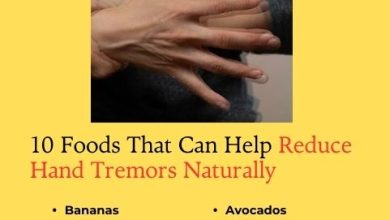7 Tips for Healthy Eating

Choosing to eat healthy is a big decision.
While many of us envy people who always seem to have their beach bodies ready in time for summer, the thought of having to actually diet and give up our favorite foods is enough to make us feel sick.
Going on a strict diet for a few weeks or months is easy. But, can you keep it up for the long run? You can’t just start eating healthy one day and expect the holiday weight you put on magically melt away.
Making small changes to your diet over time is a better way to go. You’ll be more likely to stick with them and they will have a bigger impact on your overall health. Losing weight is simply a byproduct of taking care of your body, and making these changes is much easier when you’re doing it for yourself.
Below are seven tips for healthy eating. None of these tips are revolutionary. While our knowledge of health and nutrition is constantly evolving, the basics are well-established at this point. These tips will help you feel better, have more energy, revitalize sick skin—all while losing weight sustainably.
Cravings are not the enemy
Eating healthy is one thing, but if you’re feeling deprived in any way it can be really hard to stick with your diet. This is why many diets fail in the long run because they aren’t sustainable for most people.
If you are craving something sweet or salty once in a while, there’s no harm in indulging. The key is to make sure that these cravings are not the norm, and that you’re mostly eating healthy foods. It’s also important to be mindful of how much you’re eating when you do indulge. Don’t go overboard just because it’s a special occasion!
Women, in particular, feel cravings during the week leading up to their period. This is because our bodies are preparing for a potential pregnancy and they need extra energy from food during this time, as well as more water in order to stay hydrated. To take advantage of this and burn calories while on period instead of storing them, keep healthy snacks on hand to munch on throughout the week.
Go for good carbs
High-protein diets have had their time in the sun, but it’s now clear that carbs are not the enemy. If keto diets work for you, then that’s awesome, but if they don’t then you shouldn’t feel guilty about eating carbs.
Good carbs include fruits and vegetables, whole grains like oats and quinoa, beans and legumes. These foods are full of fiber so they’ll fill you up quickly without causing a blood sugar spike or crash later on.
Choose your protein sources wisely
Not all protein is created equal. Some sources are healthier for you than others.
Opt for fish, poultry, and lean meat as your main sources of protein. If you can, try to buy organic and/or grass-fed meat. These options are typically higher in quality and contain more nutrients than their conventional counterparts.
Vegans can go for soy and other plant-based proteins. Just make sure you’re buying a high-quality vegan protein powder that contains all of the amino acids your body needs.
Include healthy fats in your diet
Healthy eating is about balance, not deprivation. While some people might think fat makes them fat, it’s actually sugar that does this more than anything else.
Good sources of healthy fats include nuts, seeds, avocado, olive oil, and fish. These foods will help keep you full and provide your body with important nutrients like omega-3 fatty acids.
Hydrate
Not only does water cleanse and detoxify your system, but it also keeps everything working properly so that every organ functions at its best. If you’re not drinking enough water then nothing else in your diet will matter.
If you’re worried about your carbon footprint then consider getting yourself a reusable BPA-free bottle that’s easy for you to carry around and refill all the time. This also helps you measure how much water you’re actually drinking each day.
Get enough fiber
One of the best things about eating healthy is that it automatically includes a lot of fiber. Fiber is essential for keeping your digestive system functioning properly and can also help reduce your risk of diseases like cancer.
Foods you want to include in your diet to get enough fiber are fruits, vegetables, whole grains, and legumes. Women younger than 50 should aim for around 25 grams per day; men under 50 should try to reach at least 38 grams per day.
Supplement wisely
While it’s preferable to get all your required nutrients from food, this is not always realistic. That’s when supplements come in handy.
Some people swear by taking a multivitamin every day as a way to ensure they’re getting all the nutrients their body needs. Others find that adding an extra vitamin D or calcium supplement gives them an added health boost.
Be sure to check with your doctor before starting any new supplement, especially if you’re on other medication or have existing health conditions that might be made worse by certain ingredients.
With the right supplementation routine and proper nutrition, you can achieve optimal fitness results without depriving yourself or risking your health.
Eating healthily is more of a journey than a destination. It takes time and effort to develop healthy habits, but the benefits are worth it! These seven tips will get you started on the right track.




